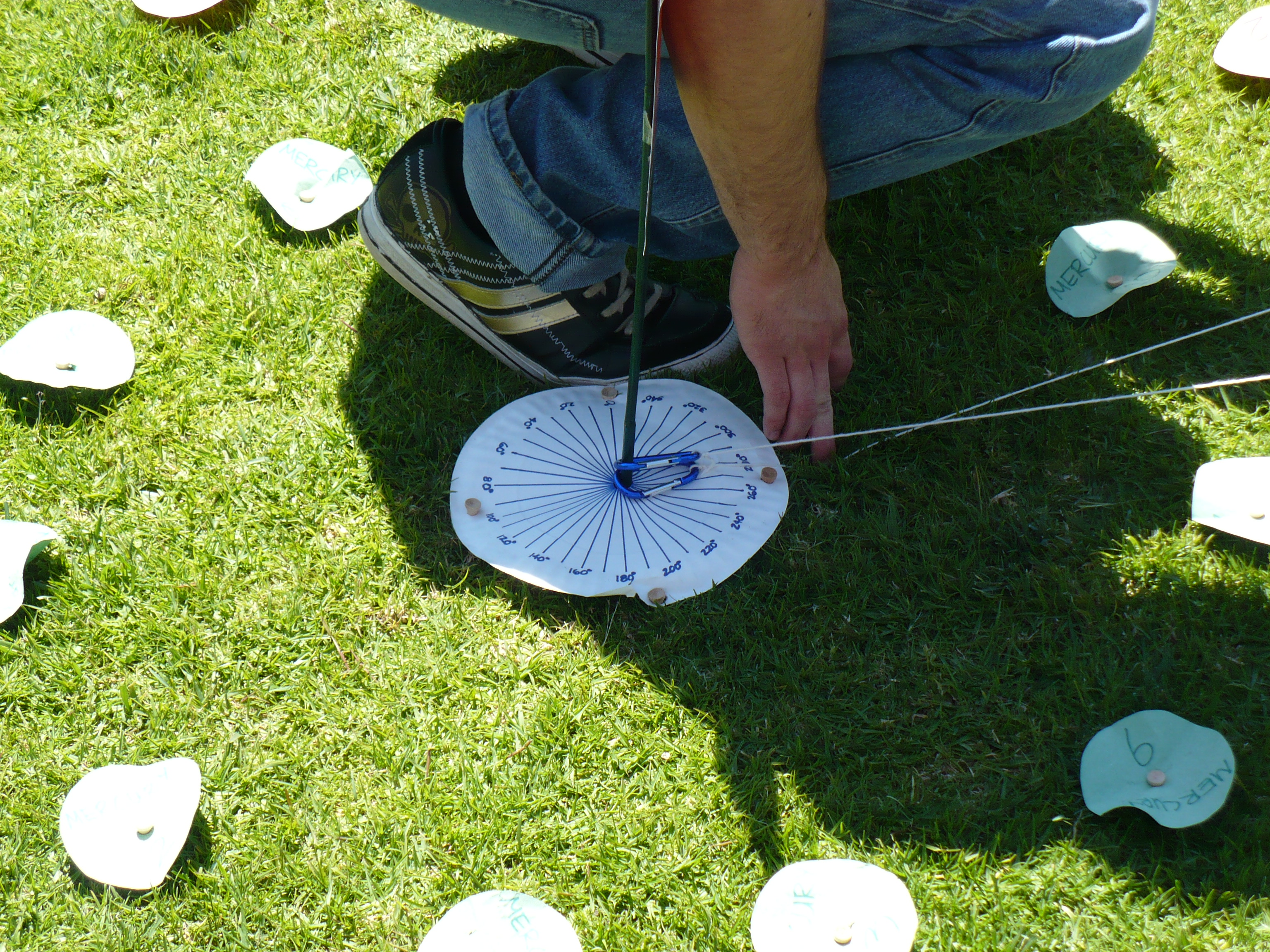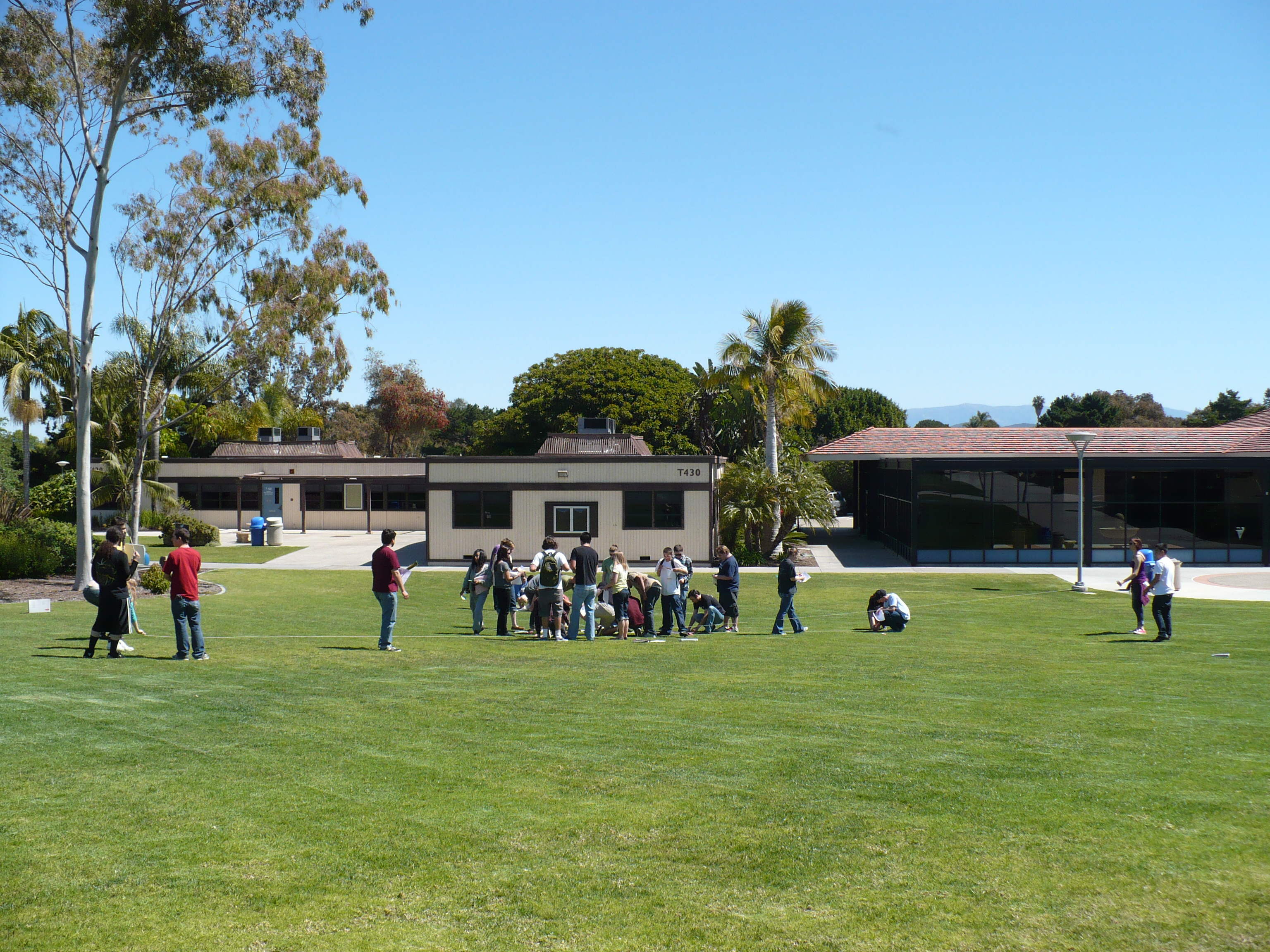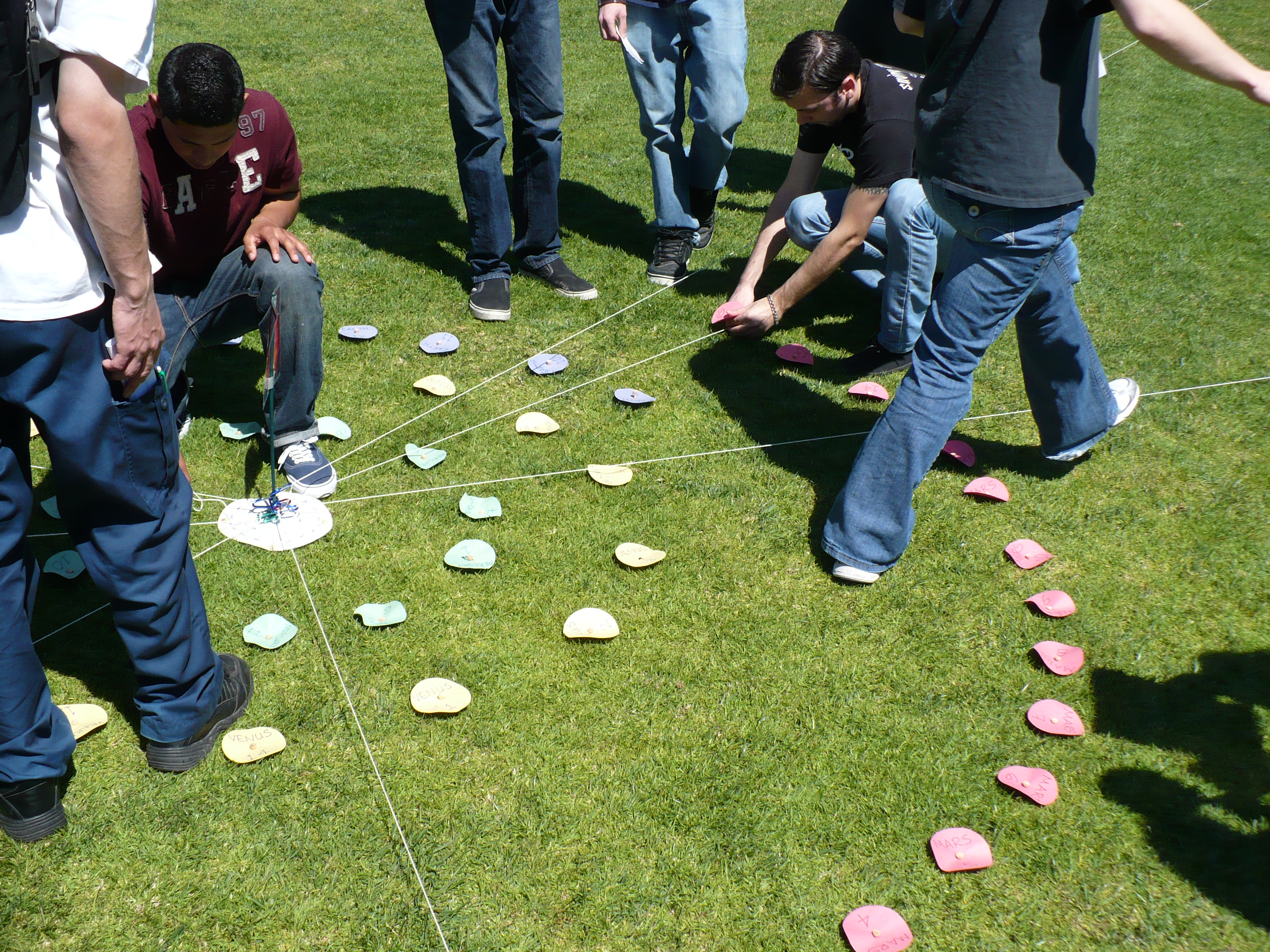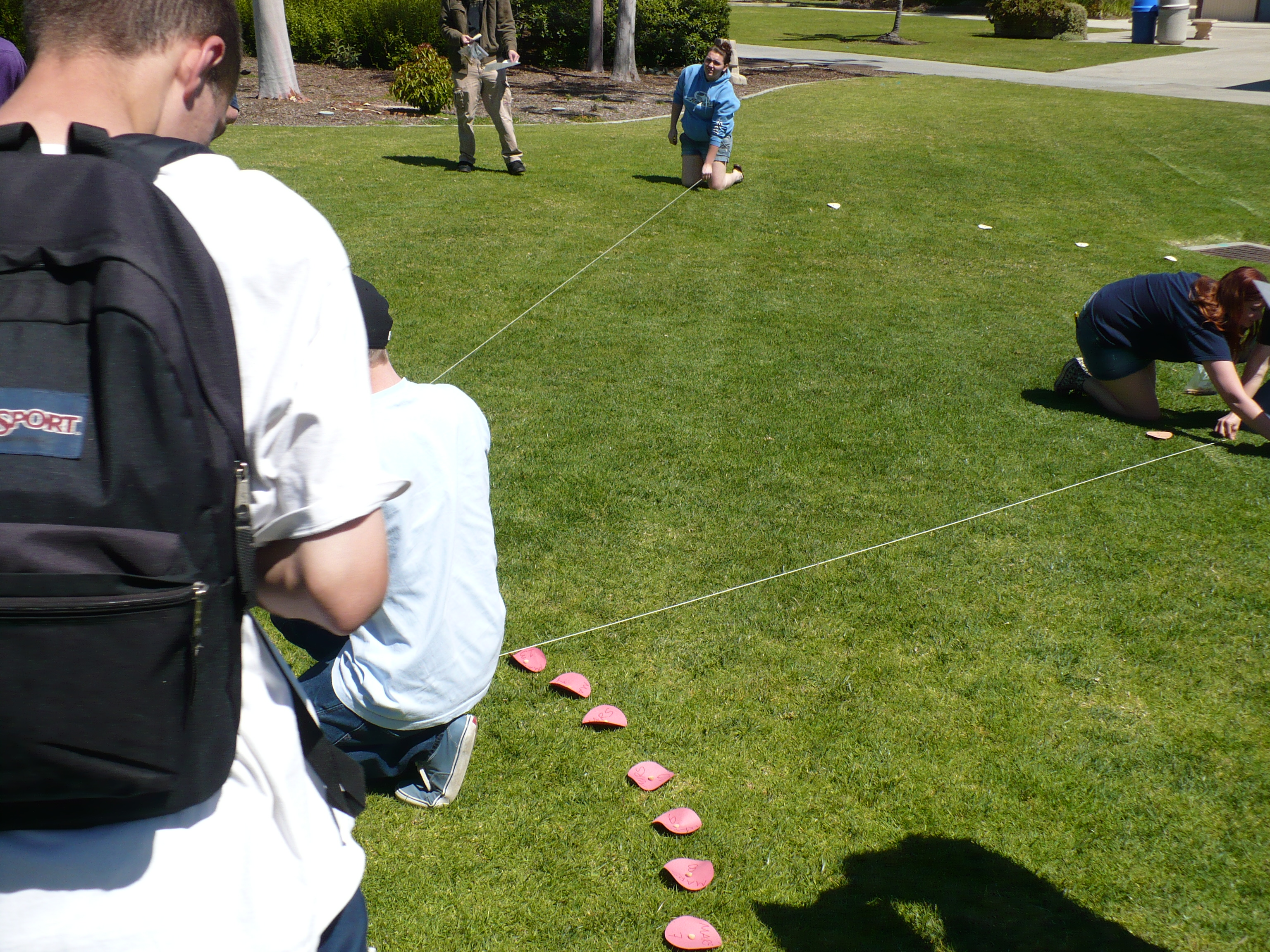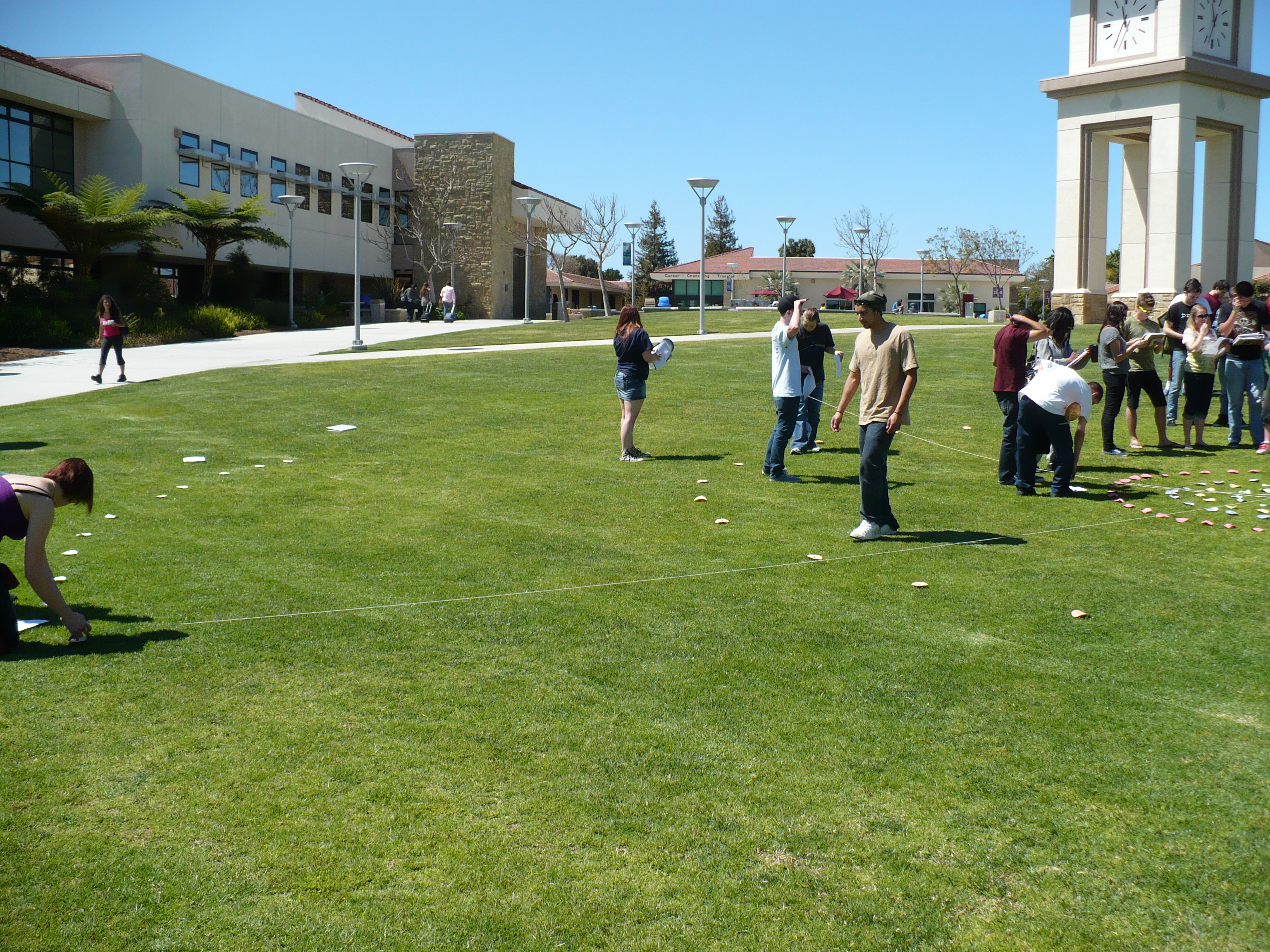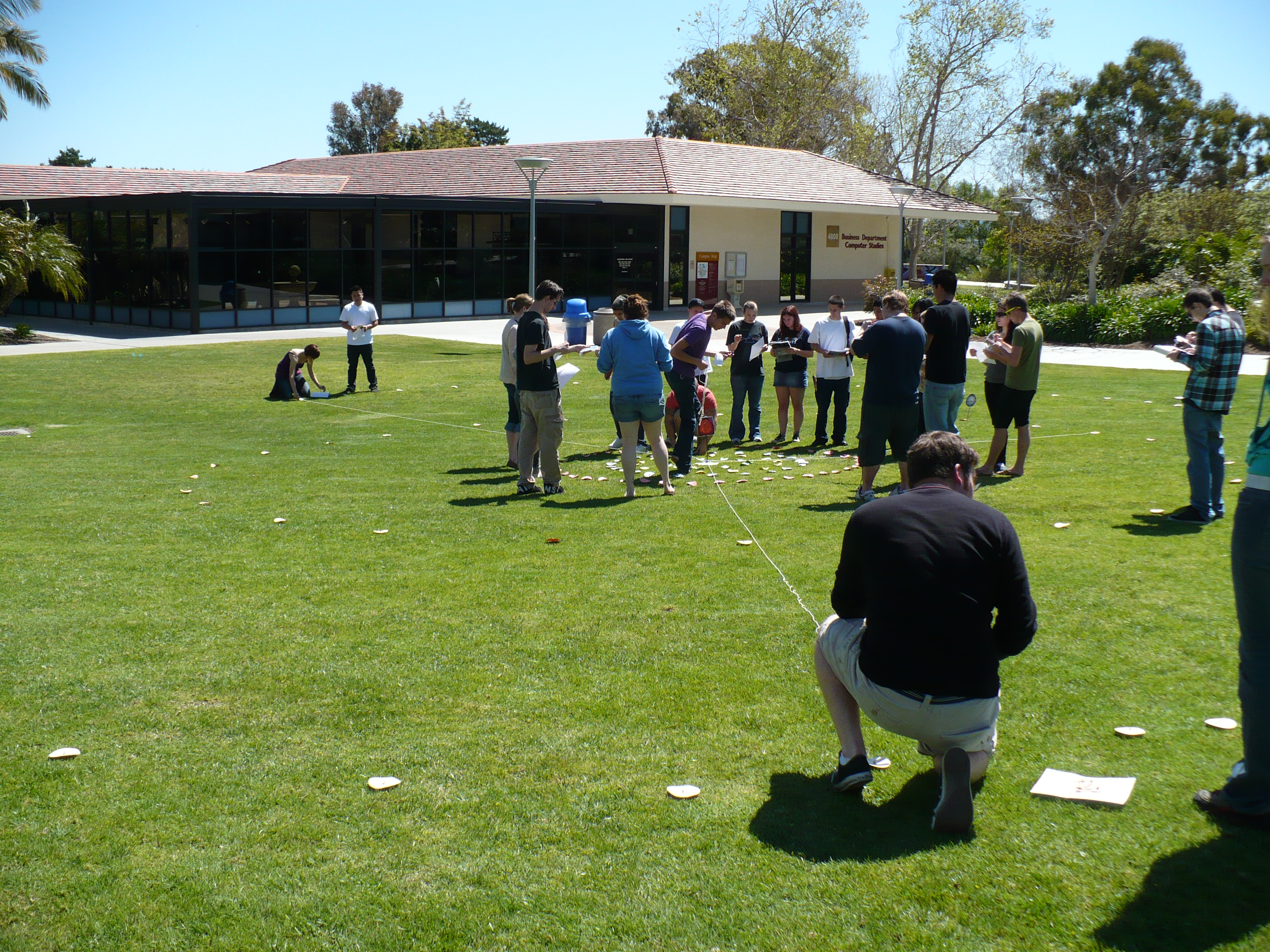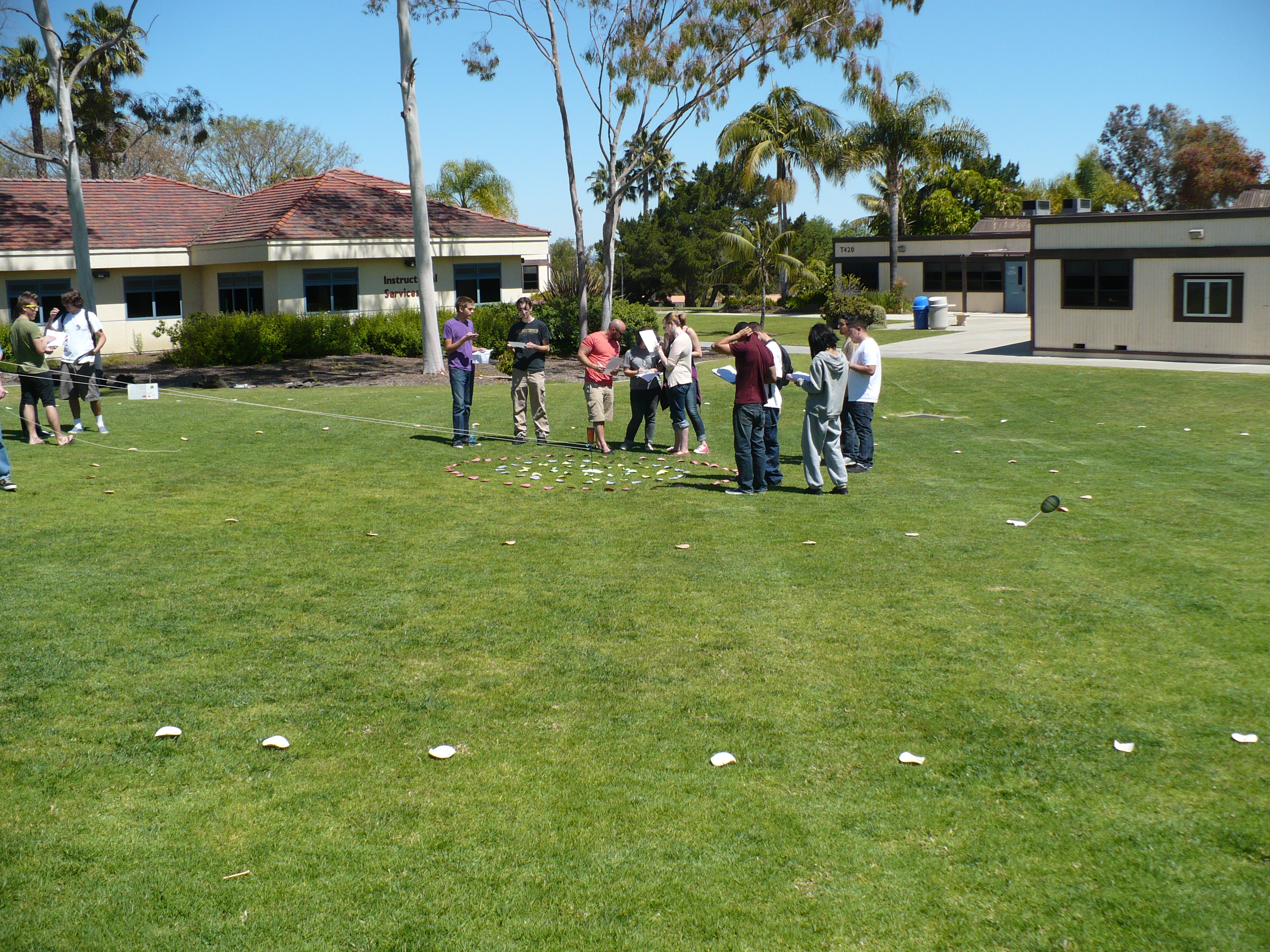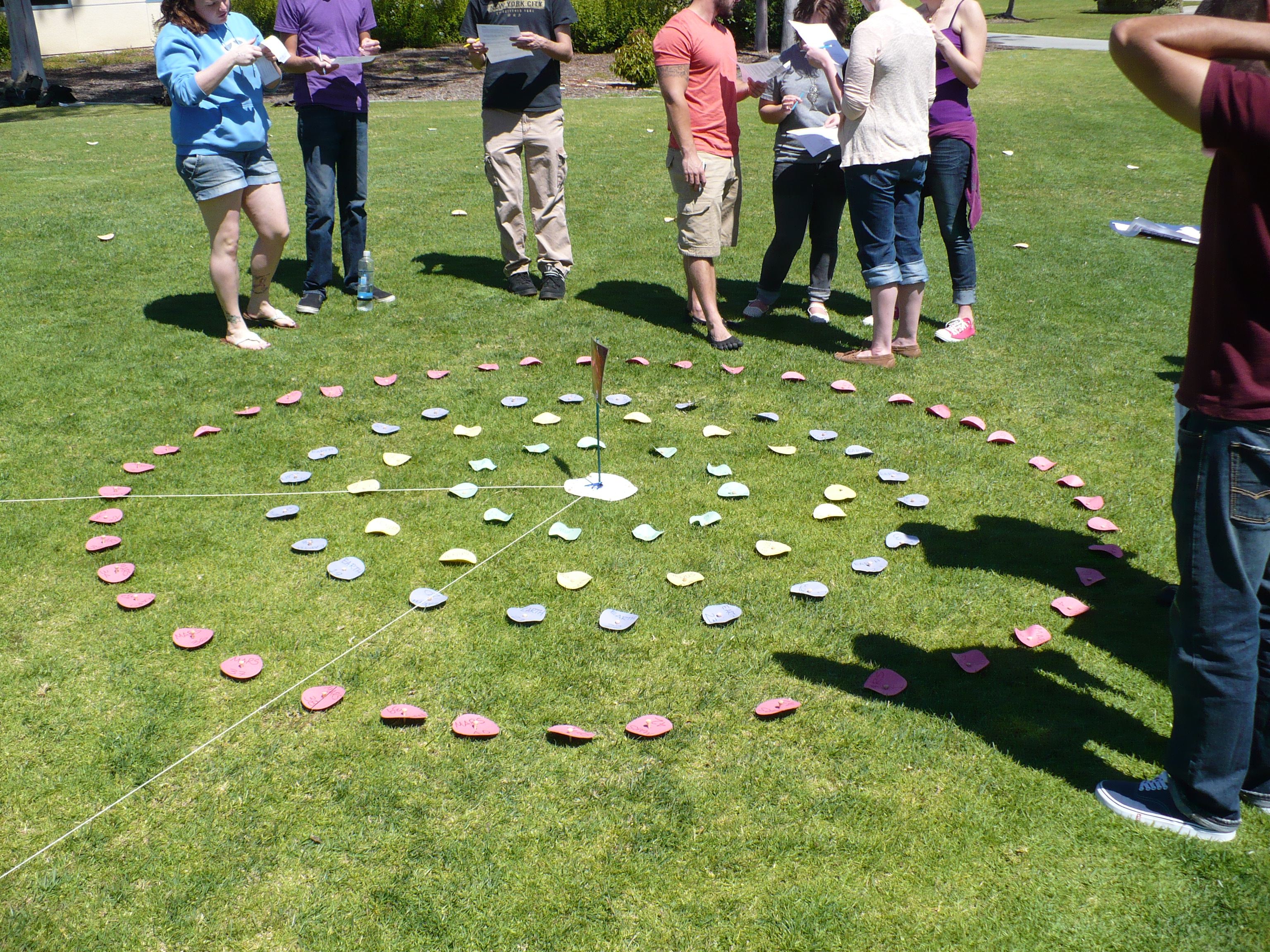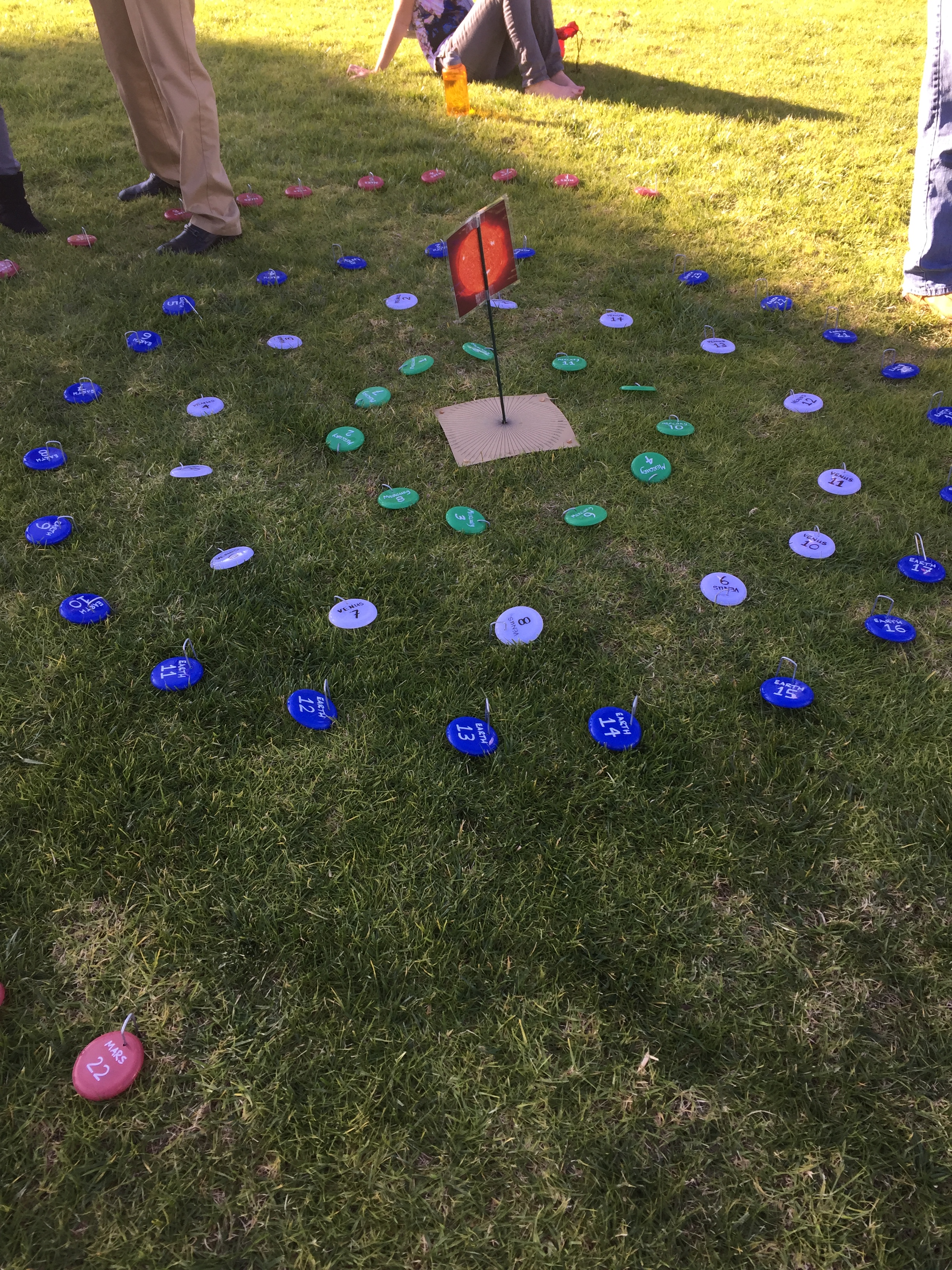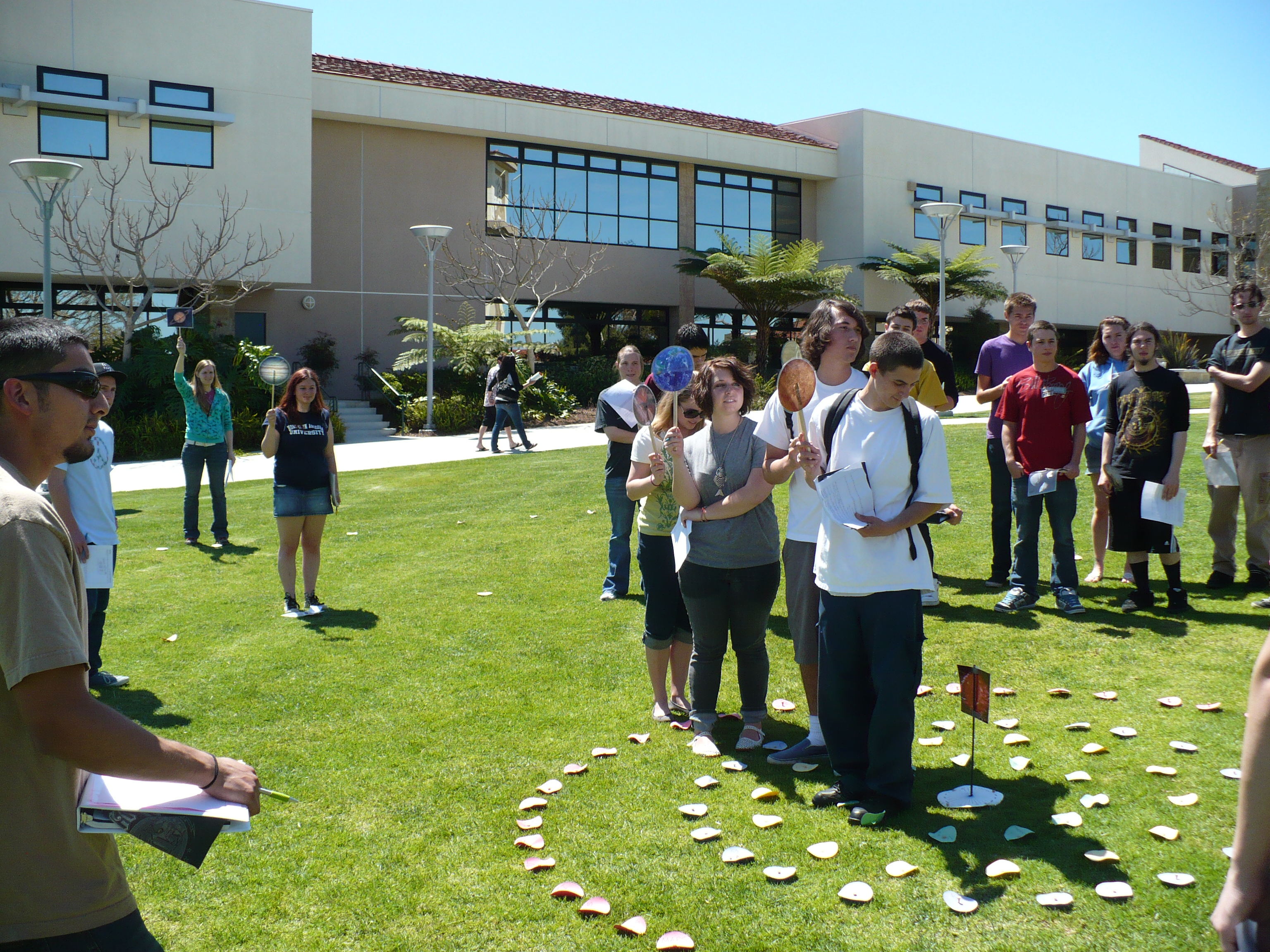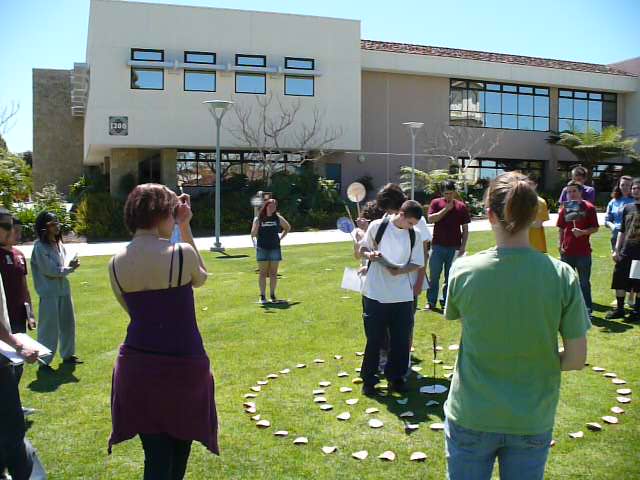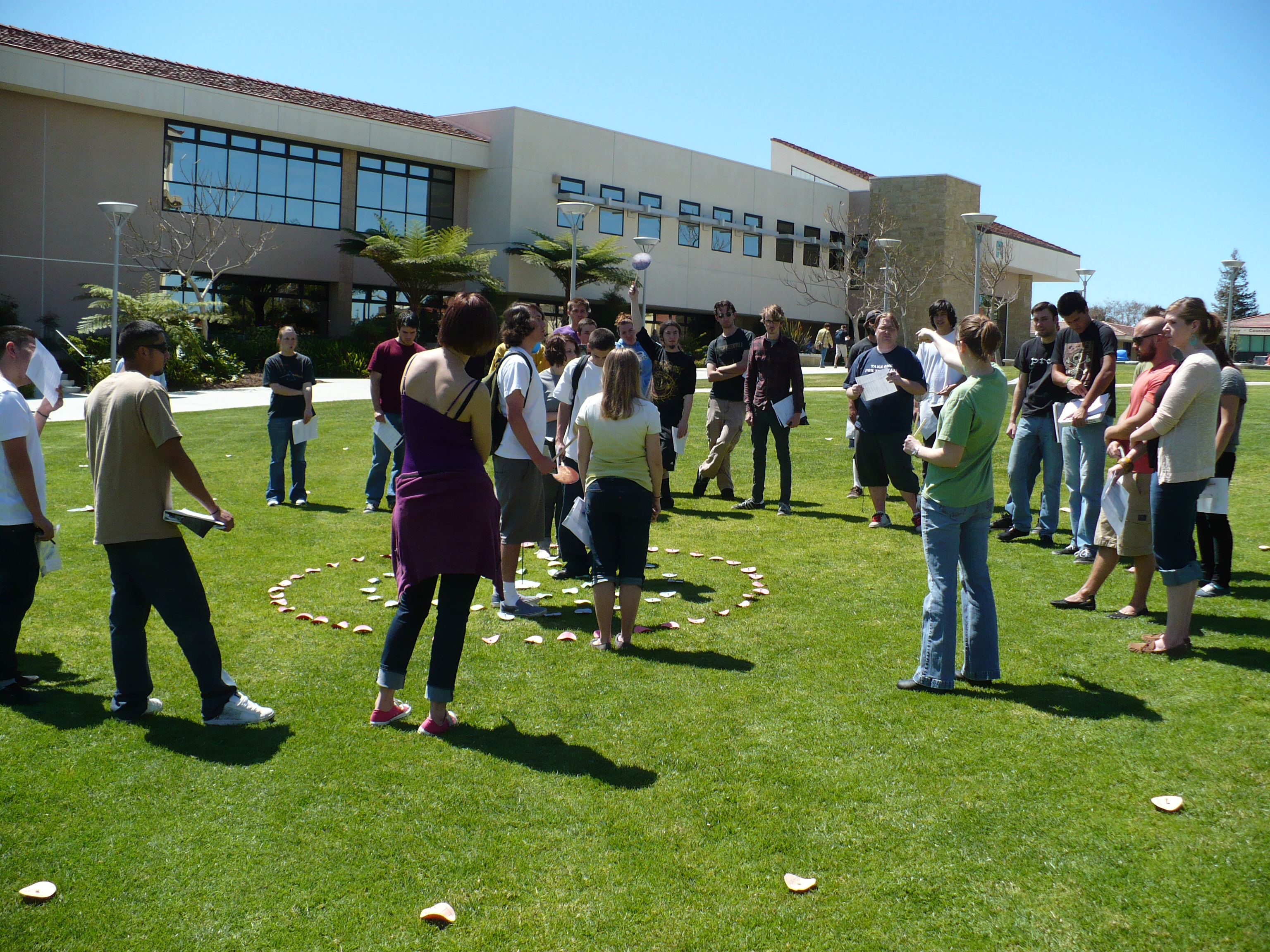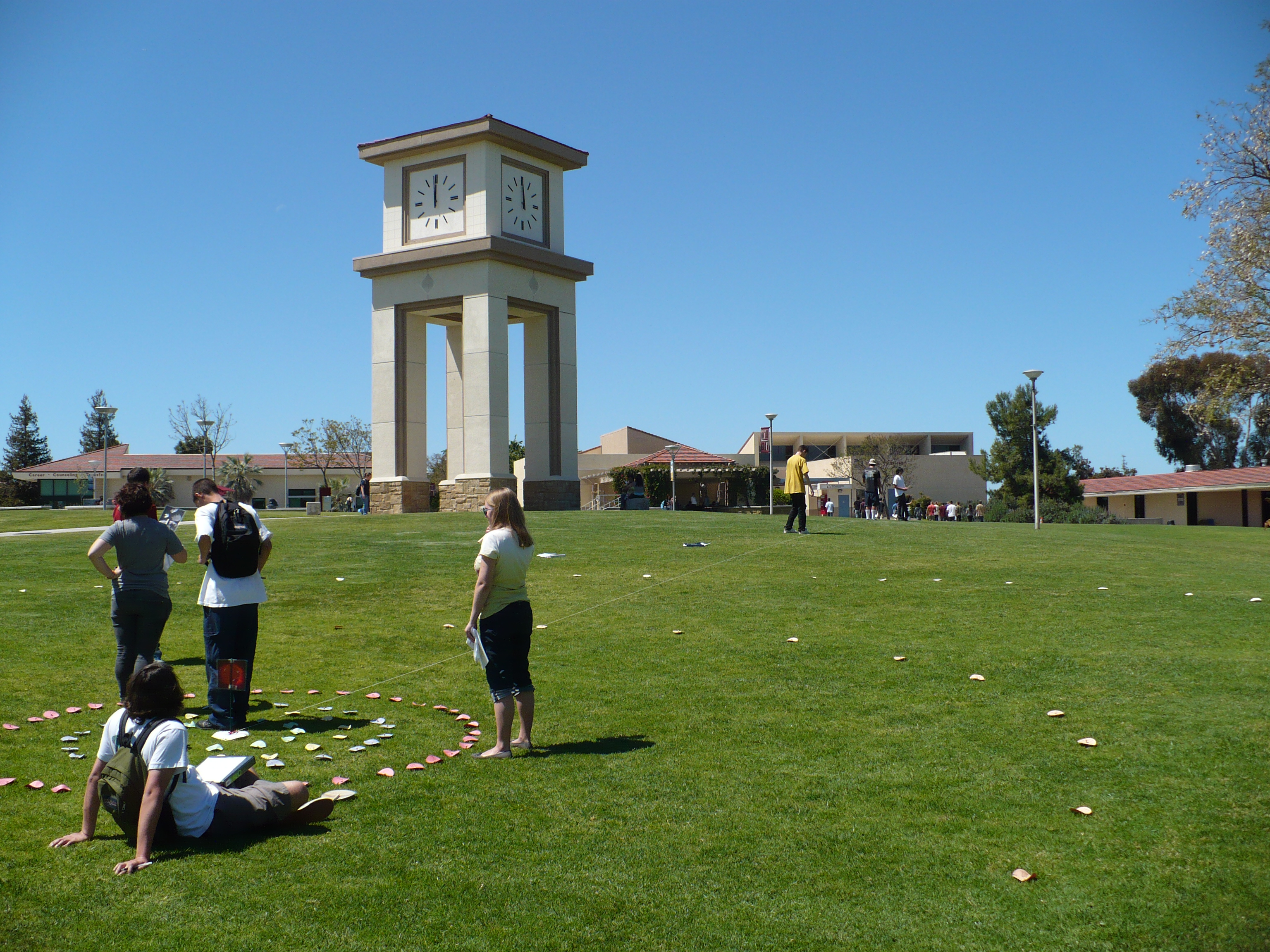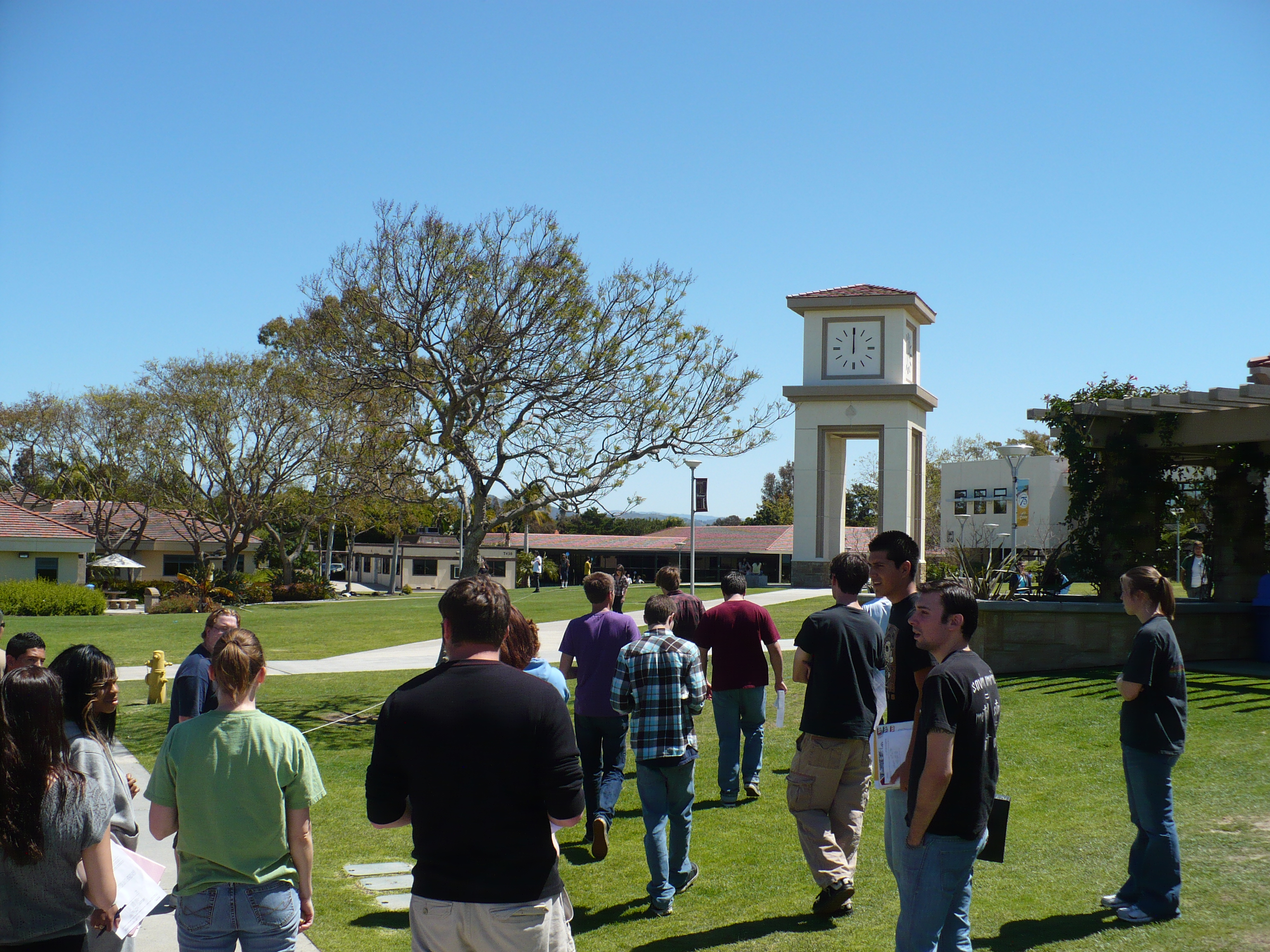Other Resources
You cannot teach a man anything; you can only help him to find it within himself.
— Galileo Galilei (1564 – 1642)
Here's a laundry list of some other potentially helpful resources.
- Books and Publications
- Concept Inventories and Attitudes Surveys
- Critical Thinking
- Discussions, In Class and Online
- Major Efforts in Pedagogy, Science Education, and Repositories
- Materials from the CAE Southwest Regional Teaching Exchange
- Metacognition
- Multiple-Choice Questions
- The Myth of Learning Styles
- Online Content for Teaching Astronomy
- Pedagogical Content Knowledge (PCK)
- Physics Education Research
- Reading Online vs. Paper
- Science Literacy
- Student Evaluations of Teaching (SET)
- The Syllabus
- What Can I Do Besides Lecture?
- Miscellaneous
- "50 CATS" by Thomas A. Angelo and K. Patricia Cross | related book
- A Collection of GIFTs: Great Ideas For Teaching from MiraCosta College faculty
- books displayed at the NASA CAE Southwest Regional Teaching Exchange
- Faculty Focus, higher education teaching strategies from Magna Publications
- "Five Characteristics of Learner-Centered Teaching" by Maryellen Weimer | PDF | related book
- National Teaching & Learning Forum at the Wiley Online Library
- subject index to papers published in Astronomy Education Review (entire journal run, 2001-2013)
- Tomorrow's Professor - online faculty development 100 times per year
There are over 50 concept inventories and attitudes surveys available in the disciplines of physics and astronomy.
- assessments from PhysPort
- assessments and papers from ComPADRE
- Best Practices for Administering Concept Inventories by Adrian Madsen, Sam McKagan, and Eleanor C. Sayre
- Guidelines for administering concept inventories online by Adrian Madsen & Sam McKagan
- QuaRCS Study and Assessment Instrument - Quantitative Reasoning for College Science from Kate Follette
- QuaRCS: Quantitative Reasoning for College Science and the Re-Numerate Newsletter from Kate Follette
- The Quantitative Reasoning for College Science (QuaRCS) Assessment 2: Demographic, Academic and Attitudinal Variables as Predictors of Quantitative Ability by Kate Follette et al. | PDF
- classic guides from Richard Paul and Linda Elder
- Morally Reframed Arguments Can Affect Support for Political Candidates by Jan Gerrit Völkel and Matthew Feinberg, available from the Social Science Research Network | PDF
- Teaching critical thinking by N.G. Holmes, Carl Wieman, and D.A. Bonn | PDF
- "Why Facts Don't Change Our Minds: New discoveries about the human mind show the limitations of reason" by Elizabeth Kolbert in The New Yorker | PDF
- "Why People 'Fly From Facts': Research shows the appeal of untestable beliefs and how they lead to a polarized society" by Troy Campbell and Justin Friesen in Scientific American | PDF
- "Why you're not as great as you think you are: It's not merely optimism, but rather that a total lack of expertise that renders the ignorant unable to recognize their deficiencies" by Natalie Wolchover of the Mother Nature Network | PDF
- "You're not as smart as you think you are: Human cleverness arises from distributing knowledge between minds, making people think they know more than they do" in The Economist | PDF
- The Big List of Class Discussion Strategies by Jennifer Gonzalez at Cult of Pedagogy
- Discussions at DePaul University's Teaching Commons
- Leading Discussions from the Center for Innovation in Teaching and Learning at the University of Illinois
- Leading Discussions from Harvard University's Derek Bok Center for Teaching and Learning
- Leading an Effective Discussion from the Yale Center for Teaching and Learning
- Mastering Online Discussion Board Facilitation at Edutopia
- Small Groups and Discussions from Stanford University's Teaching Commons
- Student-Centered Discussion Strategies for the 21st Century Classroom by Suzanne Goodney Lea and Jack Byrd, Jr. at the Interactivity Foundation
- Astronomy Image Explorer - A convenient and efficient tool for access to images published in peer-reviewed astronomy and astrophysics journals. Images made available on this site are for academic use by the community.
- Carl Wieman Science Education Initiative - effective science education, backed by evidence
- Center for Astronomy Education - dedicated to the professional development of introductory astronomy instructors
- ComPADRE - resources and services for physics and astronomy education
- Just-In-Time Teaching - a teaching and learning strategy based on the interaction between web-based study assignments and an active-learner classroom
- MERLOT: Multimedia Educational Resource for Learning and Online Teaching - a curated collection of free and open online teaching, learning, and faculty development services contributed and used by an international education community
- Modeling Instruction - professional development for STEM instructors that addresses the classroom issues of knowledge fragmentation, student passivity, and persistent misconceptions
- American Modeling Teachers Association - fostering brilliant teaching and deep learning in STEM
- PhysPort - supporting physics teaching with research-based resources (AAPT)
- PhysTEC: Physics Teacher Education Coalition - improving the education of future physics teachers
- SCALE-UP: Student-Centered Active Learning Envirnoment with Upside-down Pedagogies - designes for learning studios, teaching methods, and instructional materials grounded in discipline-based education research
- SERC: Science Education Resource Center - engaging teaching activities, effective pedagogy, and transformative workshops
- Thinking In Physics - research-based strategies and materials for improving scientific reasoning, conceptual understanding, and problem solving ability in introductory physics | accompanying book
- Understanding Science - how science really works
- Unified Astronomy Thesaurus - An open, interoperable and community-supported thesaurus that unifies the existing divergent and isolated astronomy and astrophysics thesauri into a single high-quality, freely available open thesaurus formalizing astronomical concepts and their inter-relationships.
- Web Sites for College Astronomy Instructors - to assist instructors who teach introductory astronomy classes for non-science majors
Many of the handouts in the packets are the same or change very little from year to year so they are only listed in the latest year available — start there. Then investigate prior years for items specific to that particular exchange, e.g. unique materials and participant contributions.
- participant contributions
- Google Classroom
- formative
- Semester-long curriculum on "Teaching the Nature of Science Using Pseudoscience" to accompany any introductory science course, from Doug Duncan at the University of Colorado, Boulder
- flat Earth activities, from Google
- So You Think the Earth is Round activity from the Nuffield Foundation (UK)
- The Flat Earth from the ENSI (Evolution & the Nature of Science Institutes) at the University of Indiana
- How People Learn II from the National Academies Press
- Venngage
- Canva
- Adobe Spark
- The Physics Classroom
- There were no new packets this year but check out materials from previous years below for electronic copies of prior years' contents.
- list of books displayed (same as prior year)
- "reformed" physics class
This was an extension of a discussion began during the previous year's exchange that then took the form of "problem-solving, TPS style" (see description under 2018 participant contributions below).
- Here are the slides from a previous workshop presentation. They include data on the course structures and components and comparisons of performances on the [identical] tests.
- Registered participants who were present have access to the available slide sets for the first semester of introductory calculus-based mechanics via the Dropbox link emailed to you.
- participant contributions
- Google Classroom (Bryn Bishop)
- twist on LT debriefing (Elise Weaver)
Ask the students what steps they would take to solve a particular problem then list them on the board. Take pictures and post to the classroom management system so all can access at will. Here are some examples.
- Universe Sandbox2 (Brodney Fitzgerald; also mentioned last year by Gur Windmiller)
- implementing a 3rd vote when doing Think-Pair-Share (Joe Salamon)
The idea here is that if you set it up properly and don't give too much away after a second vote (see the TPS crash course guide on this page) then you could have the students much more invested that third time around.
- Perusall (Joe Salamon)
- Quizzizz (Bryn Bishop)
- The Physics Classroom (Bryn Bishop)
- Rocketbook (Rica French)
- problem-solving, TPS style (Rica French, via Colin Wallace and Ed Prather)
Help students become better at solving mathematical problems by breaking it up into pieces, tying them to the conceptual reasoning steps, and turning these steps and other trouble spots into Think-Pair-Share questions. Colin Wallace was a first-time physics instructor when he and Ed Prather developed this method for a "reformed" calculus-based physics class where active engagement methods were used and lectures were only ~10 minutes long. Learning gains for the class were ultimately higher than those in the traditional lecture class taught by the experienced "best lecturer" in the department (same tests given in both). As far as I know, there isn't yet a formal publication on this but here are the slides showing the comparisons between the two classes. Here is an example set of lecture slides from Colin's class.
- personal whiteboards (Rica French)
Here are the various whiteboards I'd just purchased and was looking forward to trying out in the fall.
- 30-pack of plain boards, 9" x 12", double-sided, includes mini-erasers and pens
- 12-pack of x-y grid boards, 9" x 12", double-sided: no grid on back
- 10-pack of plain boards, 18" x 12": folds to 9" x 12", double-sided, magnetic
- 1-piece x-y grid board, 18" x 12", double-sided: no grid on back
- General Education Astronomy Source Project (Rica French)
- Office Lens | | iOS (Rica French)
- OneNote (Rica French)
- screencasting software (Rica French)
- Screencast-O-Matic is a small executable file that you simply download then click to run (not an install). The free version allows recordings up to 15 minutes in length.
- Screencastify is an extension you add to the Google Chrome browser. The free version allows recordings up to 10 minutes in length.
- research articles highlighted
- "Promoting Reflective Physics Teaching Through the Use of Collaborative Learning Annotation System" by Marina Milner-Bolotin (CLAS sounds kind of like Perusall [see above] for video)
- "Using the Real-time Instructor Observing Tool (RIOT) for Reflection on Teaching Practice" by Cassandra Paul and Emily West (an easy web-based tool for measuring what kinds of activities happen in your classroom; access the RIOT tool here [Google sign-in required])
- "An online tutor for astronomy: The GEAS self-review library" by Nicole P. Vogt and Amy Smith Muise
- "Active learning increases student performance in science, engineering, and mathematics" by Scott Freeman, Sarah L. Eddy, Miles McDonough, Michelle K. Smith, Nnadozie Okoroafor, Hannah Jordt, and Mary Pat Wenderoth
- There were no new packets this year but check out last year's materials (2017 below) for electronic copies of last year's packet.
- list of books displayed (same as prior year)
- packet contents
- A Society for College Science Teachers Position Statement on Introductory College-Level Science Courses
- Goals for Astro 101: From the American Astronomical Society
- ABCD card
- Think-Pair-Share with Flashcards: Low-Tech, High Return
- Rica's Crash Course Outline for Implementing Lecture Tutorials for Introductory Astronomy
- Think-Pair-Share (Peer Instruction) Resources
- Web Resources for Teaching Astronomy with Simulations
- Web Resources for Teaching Astronomy – https://astro.unl.edu
- Bloom's Taxonomy
- Bloom's Taxonomy "magic" verbs
- Exploring your initial thoughts about teaching and learning!
- Astronomy 101 Exam Questions: A Sample
- Detecting Exoplanets with the Transit Method (get Lecture Tutorials here)
- a sampling of Ranking Tasks (get Ranking Tasks here)
- list of books displayed
- participant contributions
- Universe Sandbox (Gur Windmiller)
- LIGO Clearinghouse (Robert Baker)
- online courses of interest (Robert Baker)
- "The Sun and the Total Eclipse of August 2017" via Coursera and taught by Doug Duncan at CU Boulder
- "Astronomy: Exploring Time and Space" via Coursera and taught by Chris Impey from the University of Arizona
- "Gravity! The Big Bang, Black Holes and Gravitational Waves" via Future Learn and taught by Pierre Binétruy of Université Paris Diderot
- "In the Night Sky: Orion" via Future Learn and taught by Andrew Norton and Monica Grady of The Open University
- Deconstructing Multiple-Choice Questions
Think multiple-choice questions are only appropriate for low-level assessments? Think again! We'll use Bloom's taxonomy and example questions from different disciplines to illustrate their hierarchy and power in achieving multiple levels of assessment. See how the different levels of questioning can take your students from simple recall to deep, conceptual learning. Learn some of the mechanics of designing good questions while avoiding common pitfalls. This workshop is appropriate for instructors from all disciplines.
- Interactive Questioning and Learning
Much research has been done on the pedagogical effectiveness of interactive questioning in the classroom (sometimes called "peer instruction" or "think-pair-share") and associated methods of voting (clickers, flash cards, etc.). Such questioning serves many purposes and can range from simple recall to deep, conceptual learning. The results are clear: proper implementation is the key, regardless of the method of delivery or voting mechanism. We'll provide a context for questioning in terms of the research supporting a learner-centered classroom. Then see how to use multiple-choice questions and the response system of your choice to obtain real-time feedback, whether pre-, mid-, or post-lecture. We'll cover pedagogical best practices for implementation and some of the pros and cons of low- vs. high-tech voting methods. This workshop is appropriate for instructors from all disciplines.
- presentation
- Revisiting Think-Pair-Share: An Expanded "How-To" Guide
- Clickers as Data Gathering Tools and Students' Attitudes, Motivations, and Beliefs on Their Use in this Application
- Teaching and Learning Astronomy in the 21st Century
- Farewell, Lecture?
- A National Study Addressing the Teaching and Learning of Introductory Astronomy
- How People Learn
- Reverse-Engineering Your Course
Want to move towards a learner-centered classroom but don't know where to start? Begin with your assessment...and let us help by giving you some ideas about the various methods of interactive learning, pedagogical best practices for implementing them, and how to weave them together en route to your assessment goals. This workshop is appropriate for instructors from all disciplines.
- ClassAction
Wish you had some nifty visuals to aid in teaching introductory astronomy? What about a ready-made database of multiple-choice and discussion questions? With over 400 questions, 60+ interactive simulations and animations, dozens of topic outlines and images, and your choice of web-based or locally downloaded delivery methods, ClassAction is a (FREE) powerful tool for active-learning sequences in astronomy and physics. Experience this tool for yourself and see how to make your own customizable modules from the built-in content or add your own. This workshop is appropriate for those teaching (or who will teach) introductory astronomy.
- Show-N-Tell
Got a neat thing you do in class to teach a specific topic? Developed an activity that your students love? Found a way to make Kepler's laws more exciting? Got a killer demonstration that rocks the house? Bring your good stuff: it's astronomy show-n-tell for anyone who wants to share. This workshop is appropriate for those teaching (or who will teach) introductory astronomy.
- Dana Backman
- Philip Blanco
- crash landing on the Moon
- slides | handout
- web page with flash animation | flash animation source file
- videos: Apollo 17b (mov, 1.2 MB) | Apollo 16 jump (mp4, 160 MB)
- crash landing on the Moon
- Brodney Fitzgerald
- Astronomy Jeopardy
- Wheel of Astronomy
- Rica French
It pays to think about one's thinking. Most of us know this already but it's usually a foreign concept to our learners. Here's a few readings to get you started.
- "Metacognition" by Nancy Chick, Assistant Director of Vanderbilt University's Center for Teaching
- "Metacognition: The Gift That Keeps Giving" by Marcus Conyers and Donna Wilson of Edutopia, the George Lucas Educational Foundation
- "Metacognition: An Overview" by Jennifer A. Livingston of the University at Buffalo, State University of New York
- "Effective Multiple Choice Tests" by Ed Prather
- "Deconstructing Multiple-Choice Questions" presentation at the 2010 CAE Southwest Regional Teaching Exchange
- "Writing Good Multiple-Choice Test Questions" by Cynthia J. Brame at Vanderbilt University's Center for Teaching
- "Tips for Writing Good Multiple-Choice Questions" by Maryellen Weimer in Faculty Focus
We've known this for a long time and, frankly, it should have been common sense: there's no one way to learn stuff that works every time for a single individual. Learning is context-dependent so what we're learning also in part dictates how we learn. Humans need repeated exposures that include multiple kinds of interactions with the material in order to facilitate deep learning. Some topics lend themselves more easily to visual and kinesthetic experiences while others are more auditory or performance-oriented. But all kinds of exposures are necessary to develop a robust understanding and mastery.
- "All You Need To Know About the 'Learning Styles' Myth, In Two Minutes" by Christian Jarrett in Wired
- Do Learners Really Know Best? Urban Legends in Education by Paul A. Kirschner and Jeroen J. G. van Merriënboer in Educational Psychologist
- Learning Styles: Concepts and Evidence by Harold Pashler, Mark McDaniel, Doug Rohrer, & Robert Bjork in Psychological Science in the Public Interest
- "Learning Styles As A Myth" from the Yale Center for Teaching and Learning
- "Managing the 'Learning Styles' Myth" by Keith Lambert for Education World
- Matching Learning Style to Instructional Method: Effects on Comprehension by Beth A. Rogowsky, Barbara M. Calhoun, & Paula Tallal in Journal of Educational Psychology
- The Myth of Learning Styles infographic from e-Learning Industry
- "No evidence to back idea of learning styles" - an open letter from 30 scientists and educators in The Guardian
- "Students are not hard-wired to learn in different ways – we need to stop using unproven, harmful methods" by Stephen Dinham for The Conversation
- Astronomy 2e - complete and current astronomy textbook at OpenStax by Andrew Fraknoi, David Morrison, and Sidney Wolff; suitable for introductory astronomy at almost any level from general education non-science majors to STEM majors/minors; free online and downloadable PDF with physical book available for a fee
- astronomynotes.com - Nick Strobel's classic online astronomy textbook
- Teach Astronomy - a modern online learning tool from Chris Impey that includes an online textbook
How's your PCK? Do you even know what "pedagogical content knowledge" means? To be an effective classroom facilitator you need not only to have mastered your subject matter content, you need to be fluent in pedagogy and the relevant education research and have an understanding of who your audience is and the limitations associated with that group of learners and the environment in which you're attempting to teach. The integration of all of these components has come to be known as PCK or pedagogical content knowledge. First put forth by Lee Shulman, this notion has been helping bridge those gaps and connect the dots since his Presidential Address at the 1985 annual meeting of the American Educational Research Association.
- Exploring your initial thoughts about teaching and learning! (included in packets at the annual CAE Southwest Regional Teaching Exchange)
- Knowledge and Teaching: Foundations of the New Reform by Lee S. Schulman in Harvard Educational Review
- "Pedagogical Content Knowledge: Teachers' Integration of Subject Matter, Pedagogy, Students, and Learning Environments" by Kathryn F. Cochran in Research Matters - to the Science Teacher a publication of the National Association for Research in Science Teaching | PDF
- Those Who Understand: Knowledge Growth in Teaching by Lee S. Shulman in Educational Researcher
- visual representation from the slides used at CAE's two-day Tier I Teaching Excellence Workshop
- "The demographics of physics education research" by Stephen Kanim and Ximena C. Cid | PDF
- Physics Education Consultants Directory: sort by consultant expertise and services, search for programming skills, and more. Find your next external evaluator, someone to advise your department on equity issues, or someone to run workshops at your institution. And if you are a consultant, please list yourself on the directory!
- "Promoting Reflective Physics Teaching Through the Use of Collaborative Learning Annotation System" by Marina Milner-Bolotin (CLAS sounds kind of like Perusall [see above] for video)
- "Using the Real-time Instructor Observing Tool (RIOT) for Reflection on Teaching Practice" by Cassandra Paul and Emily West (an easy web-based tool for measuring what kinds of activities happen in your classroom; access the RIOT tool here [Google sign-in required])
- "An online tutor for astronomy: The GEAS self-review library" by Nicole P. Vogt and Amy Smith Muise
- "Active learning increases student performance in science, engineering, and mathematics" by Scott Freeman, Sarah L. Eddy, Miles McDonough, Michelle K. Smith, Nnadozie Okoroafor, Hannah Jordt, and Mary Pat Wenderoth
- "Do students lose depth in digital reading" by Naomi Baron | PDF
- "The Reading Brain in the Digital Age: The Science of Paper versus Screens" by Ferris Jabr in Scientific American | PDF
- "Reading on Paper and Digitally: What the past Decades of Empirical Research Reveal" by Lauren Singer Trakhman and Patricia Alexander in Review of Educational Research | PDF
- "Subjective Impressions Do Not Mirror Online Reading Effort: Concurrent EEG-Eyetracking Evidence from the Reading of Books and Digital Media" by Franziska Kretzschmar et al. in PLOS ONE | PDF
Also see some of the articles in the Critical Thinking section about how facts don't always change our minds, the limitations on human reasoning, and how morally reframed arguments can make a difference.
- "The 95 Percent Solution" by John H. Falk and Lynn D. Dierking in American Scientist
- "The Science Literacy Paradox" by Matt Nisbet in the Skeptical Inquirer
- "What Colleges and Universities Need to Do to Advance Civic Scientific Literacy and Preserve American Democracy" by Jon D. Miller for Project Kaleidoscope, a program of the Association of American Colleges & Universities
- Civic Scientific Literacy in the United States in 2016 by Jon D. Miller, a report prepared for NASA by the University of Michigan's International Center for the Advancement of Scientific Literacy
Perhaps unsurprisingly, student evaluations of teaching effectiveness don't usually measure what we used to think they did. What evidence is there and how do you get meaningful feedback?
- 2014 An Evaluation of Course Evaluations by Philip B. Stark and Richard Freishtat in ScienceOpen
- 2016 "Bias Against Female Instructors" by Colleen Flaherty on the Inside Higher Ed website
- 2013 "Do the Best Professors Get the Worse Ratings?" by Nate Kornell in the Psychology Today blog
- 2013 "Do student evaluations measure teaching effectiveness?" by Philip Stark in the Berkeley Blog
- 2011 Evaluating students' evaluations of professors by Michela Braga, Marco Paccagnella, and Michele Pellizzari (a later version appears here in Economics of Education Review)
- 2018 "Gender Bias in Student Evaluations" by Kristina M.W. Mitchell and Jonathan Martin in PS: Political Science & Politics | PDF
- 2016 "How Do We Evaluate Teaching? Findings from a survey of faculty members." by Craig Vasey and Linda Carroll in Academe, the magazine of the American Association of University Professors (AAUP)
- 2016 Meta-analysis of faculty's teaching effectiveness: Student evaluation of teaching ratings and student learning are not related by Bob Uttl, Carmela A. White, and Daniela Wong Gonzalez in Studies in Educational Evaluation
- 2014 "Needs Improvement: Student evaluations of professors aren't just biased and absurd – they don't even work." by Rebecca Shuman for Slate (actually includes a couple of proposed solutions at the end)
- 1984 Power and Authority in the Classroom: Sexist Stereotypes in Teaching Evaluations by Elaine Martin in Signs
- 2010 The Role of Perceived Race and Gender in the Evaluation of College Teaching on RateMyProfessors.com by Landon D. Reid in Journal of Diversity in Higher Education
- 2018 "The Semester's Ending. Time to Worry About Our Flawed Course Evaluations." by Karen Kelsky in The Chronicle of Higher Education
- SGID: Small Group Instructional Diagnosis (an alternate method of obtaining student feedback, MiraCosta version)
- Possibly the original version of SGID, from the University of Washington
- Larry Crumbley's Society for A Return to Academic Standards, a collection of readings and research on the evils of SETs
- 2014 "Student course evaluations aren't worth much, and there are better ways" by George Leef of the James G. Martin Center for Academic Renewal
- 2014 "Student Course Evaluations Get An 'F'" by Anya Kamenetz for NPR
- 2016 Student Evaluations of Teaching (Mostly) Do Not Measure Teaching Effectiveness by Anne Boring, Kellie Ottoboni, and Philip B. Stark | PDF
- 2013 "The Unnecessary Agony of Student Evaluations" by Spurgeon Thompson in The Chronicle of Higher Education | PDF
- 2018 "Why We Must Stop Relying on Student Ratings of Teaching" by Michelle Falkoff in The Chronicle of Higher Education
As an instructor, it's one of the most important documents you'll ever create. Like the first day of class, it's a first impression of your course and sets the tone and oftentimes sends hidden messages. Here are some fascinating resources if you're interested in revamping your syllabi.
- Writing A Syllabus from Cornell University's Center for Teaching Excellence
- Syllabus Design from the Center for Teaching & Learning at Brigham Young University
- Syllabus Rubric, an interesting, research-validated approach with assessment documents from the Center for Teaching Excellence at the University of Virginia
- "Preparing a Learning-Focused Syllabus" by Sara M. Fulmer in the blog of the Learning Scientists
Do you give a syllabus quiz? Maybe you should... (Yes! I do! And I'll never go without it!)
- "It's in the syllabus...isn't it? How a syllabus quiz can help students learn. by Muveddet Harris of the Searle Center for Advancing Learning and Teaching at Northwestern University
Lecturing is that mysterious process by means of which the contents of the note-book of the professor are transferred through the instrument of the fountain pen to the note-book of the student without passing through the mind of either.
— Harry Lloyd Miller (1873 – 1928)
So you've heard that lecturing is "bad" and you're wondering what else you could [should?] be doing? To be clear, lecturing isn't inherently bad. Lecture has gotten a bad rap primarily because most of us have forgotten where it's true utility lies: in transmitting facts and story-telling. As long as that's what we're using it for, it's fantastic! The problem arises when we make the mistake of thinking that lecturing means facilitating learning.
Lecture is an often necessary part of facilitating learning but it's just that – a part of it. And it's one very small part at that. Lecture can help provide background information, definitions, etc. But there are lots of other things to do along with that short bit of lecture (before? interspersed? after?) that will actually help facilitate deep conceptual learning when part of a well-designed learning sequence. Here's a few ideas taken from the slides of various CAE workshops.
- flip your class (Flipped Classroom infographic from Knewton)
This means you move all lecture out of the classroom and into the "homework space" so that you can then spend your class time doing a lot of these other activities, focusing on developing the learning. It's what I've done with my Physical Science 101 class and am now doing with my Astro 101 classes. The Center for Teaching Excellence at Cornell University is a great resource for getting started.
- ask questions (But not all questions are equal! Thanks to Doug Duncan!)
- issues with questioning in the classroom
- insufficient wait time
Do you give your students enough time to answer questions that you ask? Most of us don't and we don't even realize it. Even when we do realize it, we ignore what we should do (wait patiently) because we can't stand the uncomfortable silence. Big mistake! If you ask your students a question, be prepared to be silent for about ten (yes, 10) seconds while you wait for them to (1) realize that you just asked them a question that you expect an answer to, (2) rewind their brains to figure out what you just asked, (3) decide if they might have an answer, (4) begin to formulating an answer, (5) overcome their apprehension and raise a hand, (6) be called on, etc. Do you see now? In fact, statistically it takes about seven seconds before the first hand ever goes up. Don't believe it? Try it. Ask a question and then begin counting the seconds in your head. (Also see this.)
- the rapid reward
You know that one student who is super-into the class, sits on the front row every time, hangs on your every word, and eagerly blurts out the answer to every question you ask without giving anyone else a chance? You might love that but you gotta nip it in the bud! Did you catch that last part — the part about not giving anyone else a chance? If you fall for that you're alienating everyone else in the room. Why would they bother thinking hard enough to try and answer your questions, let alone even pay attention at all, if they know the "smart" kid at the front will do their thinking for them every time? Yeah, that's a problem. There's a few ways to handle it: (1) acknowledge the student's response without giving anything away about whether it's right or wrong while you purposefully solicit other responses, "Hmmm...interesting...what other thoughts do you all have?" or (2) take the student aside before/after class and be honest, "I *love* that you're so into this and participating so eagerly! But I am going to need you to do me a favor: as badly as you want to answer first, keep it to yourself for a few seconds and give the rest of the class a chance before raising your hand. You're doing all the work for them so help me make them pull some of their weight.". (Also see this.)
- the programmed answer
This is where you've set up the situation and asked the question in such a way that it's virtually impossible for someone who was paying attention to get it wrong...which sounds great until you realize that this means the audience doesn't need to know what that answer means or why it's the answer to get it right. (Also see this.) (Note that this is actually the primary technique employed when doing "interactive" lecturing! See below.)
- non-specific feedback questions
"Any questions?" "Okay?" "Is everybody with me?" "Do we understand?" "How we doin'?" "Everybody okay?" "Got it?" Most of us have asked questions like this at one point or another and there may be cases where they're actually appropriate for a particular situation. But generally speaking, these are useless questions that only waste class time because they don't give you any meaningful feedback on the progress of your learners. (Also see this.)
- fixation at a low level of questioning
Repeatedly setting the bar too low conditions your learners to expect this on assessments. It's not that the lower level questions can't be helpful. Just don't make the mistake of keeping all of your questioning activities down near levels 1 ("remember") and 2 ("understand") of Bloom's taxonomy (resources here, here, and here). (Also see this.)
- teacher's "ego-stroking" and classroom climate
Most of us understand how the tone of a question or comment can send messages other than what we intended. There are specific words, too, that can sabotage the learning environment, sometimes irreparably. "Obviously, ..." "You should have learned this back in..." "It should be clear that..." Saying things like this alienates pretty much everyone whether they agree with you and still feel it's pompous or arrogant or they truly don't know these things and are now made to feel stupid or inferior because of it. (Also see this.)
- insufficient wait time
- specific technique: Think-Pair-Share or Peer Instruction
- issues with questioning in the classroom
- debates (individual or using groups)
- discussions (whole class; see the Discussions section)
- "interactive" lecture
This is still just telling students things but I have tried to alter what lecturing I do so that it follows this guideline: set them up for filling in the blanks when I pause. An almost silly example might be something like "We live on a planet called _____. It orbits the ___, which is a ____." This is actually a variant on "the programmed answer" above under "issues with questioning." I do it so that they realize they can't just sit back and check out. They have to listen and participate because if I don't get the level of participation I expect when it comes time for them to fill in the blank, I'll let them know and repeat it until I do ("That wasn't enough of you. Let's try it again.").
- small group interactions
- case studies
- concept maps
Here are a few decent introductions to concept maps.
- concept map at Wikipedia
- "What Is A Concept Map?" by Alberto J. Cañas and Joseph D. Novak at Cmap, of the Florida Institute for Human & Machine Cognition
- "What Is A Concept Map?" from Lucidchart
- Lecture Tutorials
- Ranking Tasks
- sorting tasks [example | example]
- use props
- Demonstrations
- laboratory exercises
- Simulations
- Videos
- writing prompts (short, ~5 minutes, with or without discussion; great for taking attendance and/or participation points)
- elicitation
Starting your unit on seasons? Why not start with something like this? Make sure students understand that they're not being graded for right or wrong answers; this is simply to "make" them get their ideas out there, make them concrete, so they have something to confront when going through the learning sequence.
- muddiest point | great write-up here taken from Paul D. Camp Community College
- personal reflections
- summary of main points
- try the CATs (Classroom Assessment Techniques) of Angelo and Cross above in the "Books and Publications" section for additional ideas
Clear thinking is not possible in the absence of clear writing.
— Thomas R. Famula (1955 –) - elicitation
- "A Model of Learning Objectives Based On A Taxonomy for Learning, Teaching, and Assessing: A Revision of Bloom's Taxonomy of Educational Objectives" from the Center for Excellence in Learning and Teaching at Iowa State University
- A Private Universe - a video documentary on education research from Annenberg Learner and the Harvard-Smithsonian Center for Astrophysics
- An Ancient Universe: How Astronomers Know the Vast Scale of Cosmic Time, a guide for teachers, students, and the public published by the American Astronomical Society with the Astronomical Society of the Pacific
- Astrolrner listserv – join the community!
- Global Warming Primer by Jeffrey Bennett
- "How to learn better at any age: You're studying wrong. But don't worry, it's not too late to get much, much better." by Peter C. Brown, Henry L. Roediger III, and Mark A. McDaniel in the Boston Globe | PDF | related book
- "How Your Office Could Inspire Student Collaboration" by Beckie Supiano in The Chronicle of Higher Education
- NASA Wavelength Digital Library, a full spectrum of NASA resources for earth and space science education
- "Should You Trust Climate Science? Maybe the Eclipse Is a Clue" | PDF by Justin Gillis in The New York Times
- Stellar Education and Research by Dave Bruning
- "Value added or misattributed? A multi-institution study on the educational benefit of labs for reinforcing physics content." by N.G. Holmes et al. in Physical Review Physics Education Research
- Workshop Materials for Participants in CAE's Teaching Excellence Workshops
- Writing Good Negative Reviews by Rachel E. Scherr for PERCoGS
- "Why You Can Never Argue With Conspiracy Theorists | Argument Clinic" from Jason Tanz of Wired (thanks to Elise Weaver for this!)




